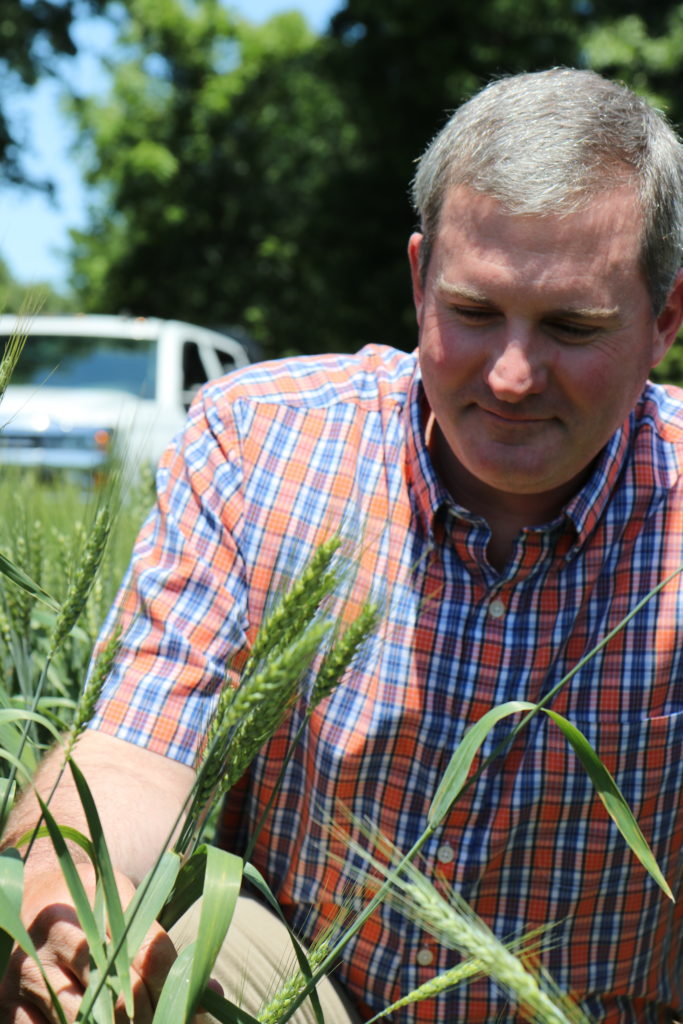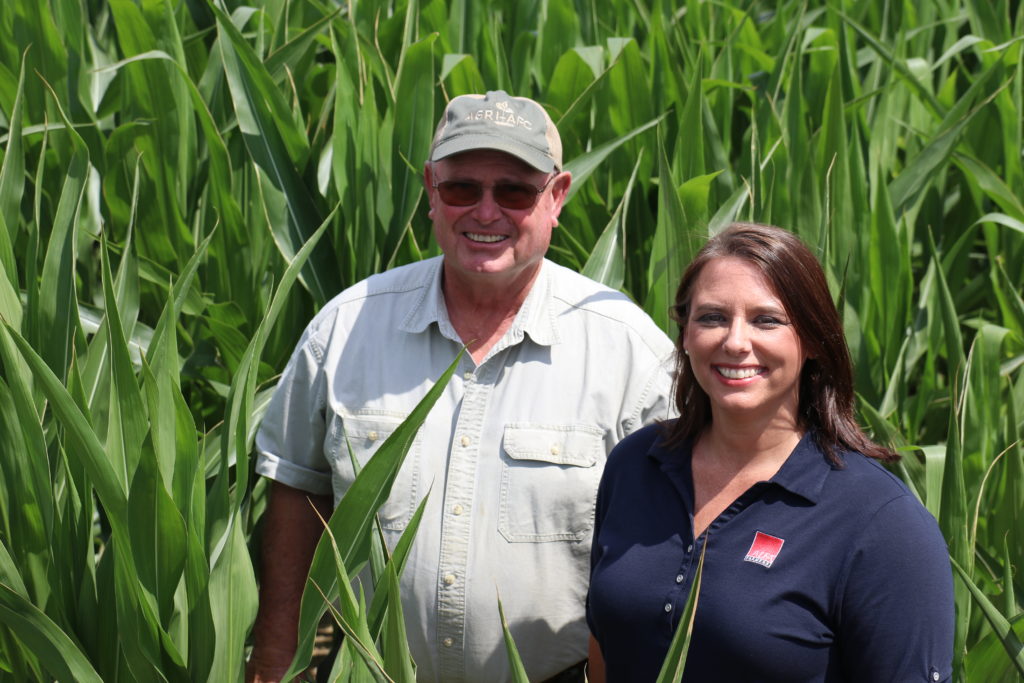Wheat & Feed Grain Farmers Reap Benefits Of Checkoff

By Marlee Moore
Alabama farmers growing wheat, corn, oats and grain sorghum have reaped the benefits of research, education and promotion for 35 years through the Alabama Wheat & Feed Grain Checkoff.
Producers will vote Aug. 10 to continue the voluntary checkoff another five years. For farmers like Stanley Walters, voting “yes” is an easy choice.
“Paying into a checkoff directly benefits farmers,” said Walters, who farms in Dallas, Hale, Marengo and Perry counties with his son, Clay. “One of the biggest things the checkoff does is fact check the industry. Research helps confirm or contradict industry claims so we know the best varieties to plant.”
Walters chairs the State Wheat & Feed Grain Committee, a group of 12 farmers elected by fellow growers to distribute checkoff funds. One cent per bushel of grain sold is collected at the buying point to fund research, promotion and education.
Farmer-leaders don’t just sign off on funding requests. They listen to detailed research proposals, pour over each request and consider what’s important to the state’s farmers before confirming, or denying, a project.

“The due diligence of the committee members has always inspired me,” Walters said. “We may not all benefit from every proposal, but we support each other.”
Take John Bevel, who farms in the hills of Marshall County hundreds of miles from Walters’ Black Belt soils. Bevel said their end goals are the same, though research needs vary based on differences in soil, irrigation, pests, crop rotation and more.
“The checkoff is a way for producers to receive unbiased research that can help us grow better crops and increase profitability on our farms,” Bevel said.
Wheat & Feed Grain Checkoff-funded projects have run the gamut since its inception in 1986.
Researchers at institutions such as Auburn University (AU) receive the bulk of checkoff dollars, which fund projects that include variety trials, disease monitoring, plant protection and irrigation. At AU researchers’ requests, the checkoff recently began leasing a small plot combine that’s already paying dividends and improving research trial efficiency.
The checkoff also promotes crops through media such as Neighbors magazine and “Simply Southern TV.” Checkoff dollars have twice funded the Alabama Ag Expedition, an educational trip where AU students learn about the diversity and scope of Alabama agriculture.
State committee members are conscientious decision-makers, said the Alabama Farmers Federation’s Carla Hornady.
“Our committee members want to know who these projects will help,” said Hornady, who coordinates the state committee as the Federation’s Wheat & Feed Grain Division director. “Will certain projects economically benefit a farm or is it a waste? They ask themselves questions like this before signing off on a proposal.”
For Walters, giving 1 cent per bushel of his crops has directly benefited his ability to farm.
“I can’t imagine all the innovations that have come through over the last 35 years,” he said. “The checkoff confirms what is best for our bottom line.”
